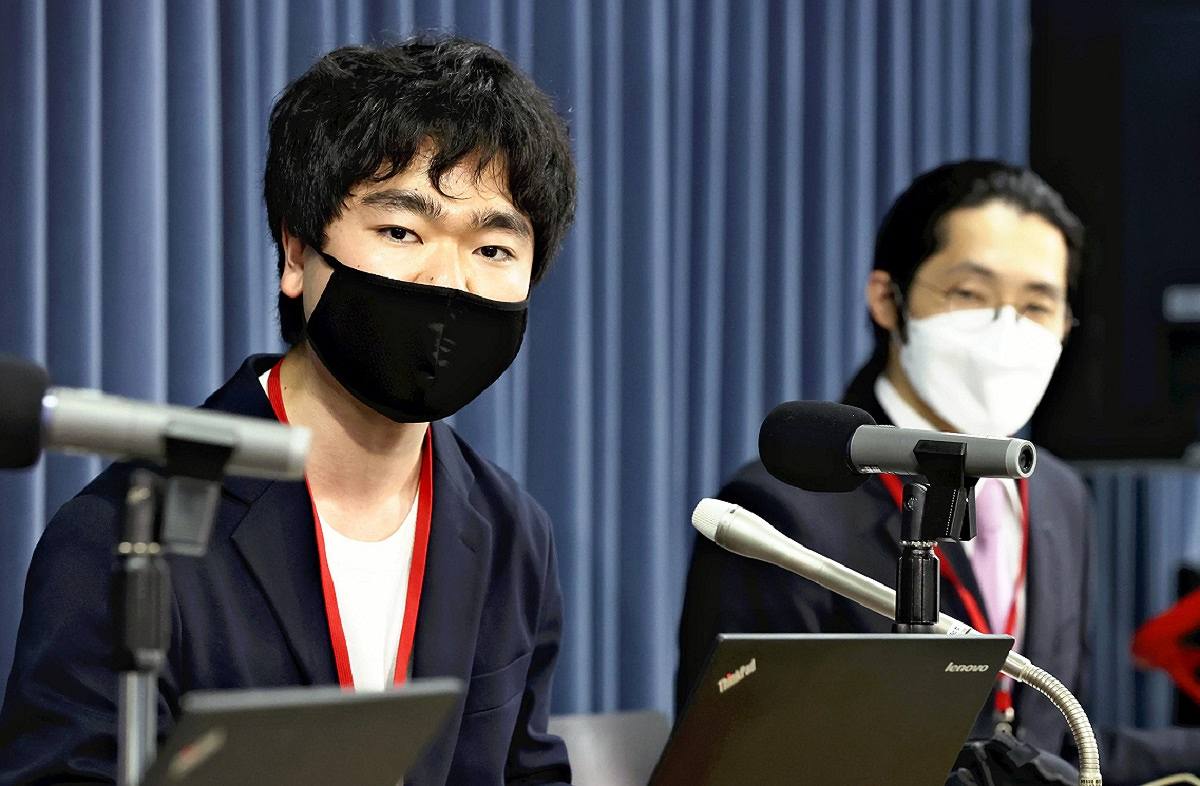Legal Safeguards for Intellectual Property Weak on AI; Japanese Govt Panel Notes Issues, Offers Little Remedy

A Creator expresses his concerns about rights violations by generative artificial intelligence during a press conference in April 2023.
17:26 JST, March 22, 2024
The draft outline of a government panel’s interim report has acknowledged that Japan’s existing laws are limited in their ability to prevent infringements of intellectual property rights by artificial intelligence technologies. It calls on AI operators to voluntarily make efforts to protect those rights.
The outline approved Thursday by the panel tasked with discussing the protection of intellectual property rights in the era of AI also underlined the importance of providing some compensation to creators and other rights holders, but did not go as far as to call for new legislation governing AI.
Chief Cabinet Secretary Yoshimasa Hayashi touched on the issue of protecting intellectual property rights during his press conference the same day. “Additional efforts must be promoted through an appropriate combination of laws, technologies and contracts at each stage,” Hayashi said.
When instructed to imitate the painting style of a given artist, generative AI can easily produce a picture that looks like an artwork the artist might have created. Similarly, this technology can easily generate a voice by learning the voices of real-life singers and voice actors.
Creators around the world have become increasingly concerned that their rights could be infringed by AI, which can very easily learn artworks and mimic skills that human creators used their ability and effort to develop.
The draft outline explicitly states that there are instances in which current laws cannot respond to such situations. Abilities nurtured during the creation of artworks, and literary or artistic “styles” that do not lend themselves to precise definitions, fall outside what is protected under the Copyright Law, and the outline explains that the possibility of things such as the “voice” of a voice actor being protected as a form of publicity rights by the law “cannot be said to be high.”
In addition, based on moves to introduce AI regulations in Europe and the United States, the outline states that the “formation of international rules and international standardization might be necessary.”
The European Union has passed AI legislation that includes penalties for violations of AI development and operation rules, and this will start being applied in 2026. By contrast, momentum for crafting a similar legal framework in Japan has not been growing.
A Cabinet Office official said the draft outline was not intended to be a channel “for offering an opinion on creating something new, but rather something arranged based on current laws.”
Uniform measures ‘difficult’
The draft outline also suggested that creators could be protected by way of having “profits returned” in the event that their work is used for learning by AI.
Individual creators and AI operators are not on an equal footing when it comes to bargaining power. Accordingly, the outline called on these operators to establish opportunities to properly adjust and reconcile usage conditions and other details with the creators.
The Copyright Law allows the training of AI models with copyrighted material without permission from copyright holders. However, the outline said that even in these cases it would be “possible” to reach an agreement with copyright holders on providing compensation to them, and that “it could be expected” that AI operators would offer such compensation.
However, the draft outline also stated that establishing “uniform, systematic measures” would be difficult. As things stand, it will be up to operators to take it upon themselves to make efforts on this issue.
Top Articles in Politics
-

Japan PM Takaichi’s Cabinet Resigns en Masse
-

Sanae Takaichi Elected Prime Minister of Japan; Keeps All Cabinet Appointees from Previous Term
-

Japan’s Govt to Submit Road Map for Growth Strategy in March, PM Takaichi to Announce in Upcoming Policy Speech
-

LDP Wins Historic Landslide Victory
-

LDP Wins Landslide Victory, Secures Single-party Majority; Ruling Coalition with JIP Poised to Secure Over 300 seats (UPDATE 1)
JN ACCESS RANKING
-

Producer Behind Pop Group XG Arrested for Cocaine Possession
-

Japan PM Takaichi’s Cabinet Resigns en Masse
-

Man Infected with Measles Reportedly Dined at Restaurant in Tokyo Station
-

Israeli Ambassador to Japan Speaks about Japan’s Role in the Reconstruction of Gaza
-

Videos Plagiarized, Reposted with False Subtitles Claiming ‘Ryukyu Belongs to China’; Anti-China False Information Also Posted in Japan























